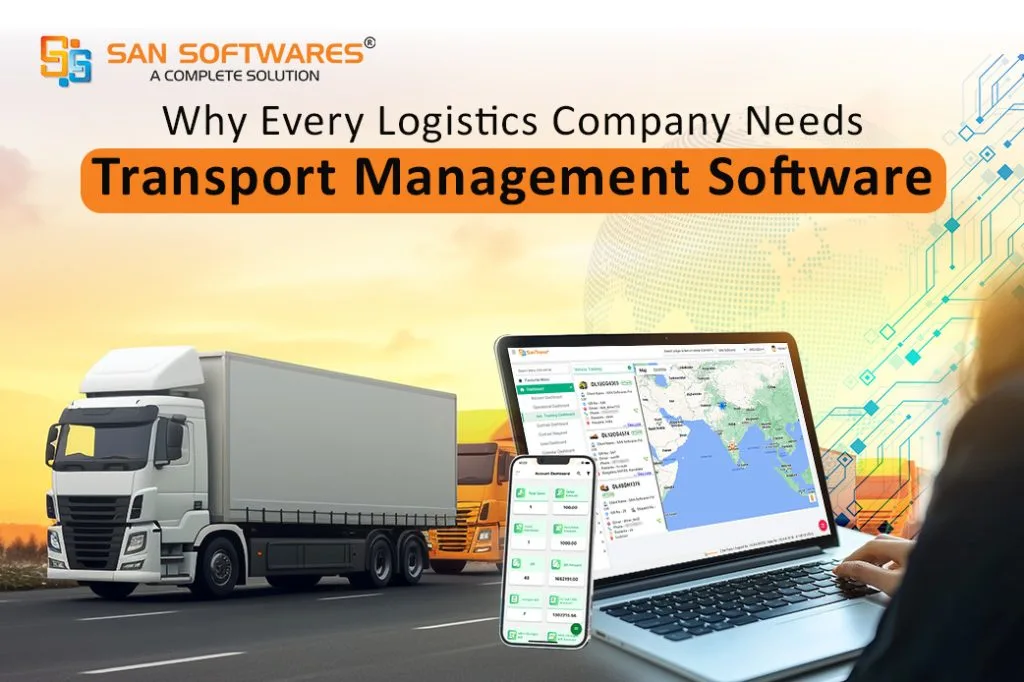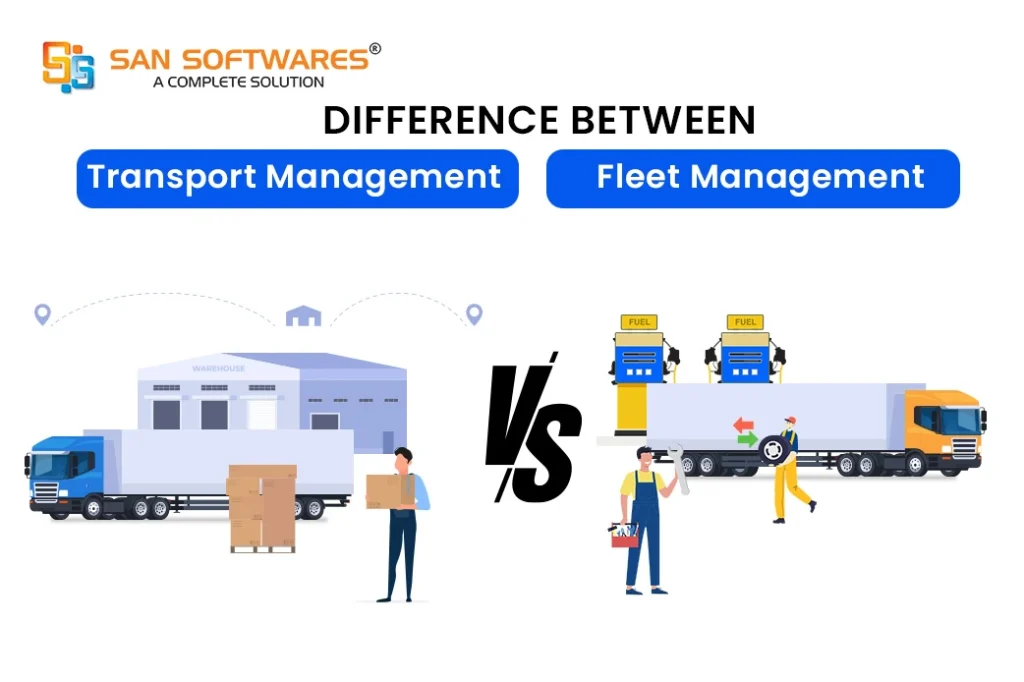
In the world of logistics, success is basically efficiency, reliability, and smooth coordination. With increasingly complicated supply chains and raised customer expectations, logistics enterprises are bound to adopt technologies that smoothen operations and enhance overall performance. Such indispensable tools in the armada include TMS or Transport Management Software. TMS has emerged as a game-changing tool in the industry that enables businesses to manage their fleets, optimize routes, and ensure timely and cost-effective delivery of goods.
The aim of this blog is to discuss the reasons why a transport management software system needs to be implemented at every logistics company and the way in which it can work alongside a fleet management system to drive greater efficiency and profitability.
This means that logistics is basically the business of efficiently moving goods from one place to another. But that is often easier said than done. If managed manually, it gets quite overwhelming with many vehicles, drivers, routes, and delivery schedules. That’s where Transportation Management Software steps in.
It automates processes, including route planning, shipment tracking, and invoicing, which makes everyday operations efficient. It supports logistic companies in coordinating and executing their transportation tasks at any moment, whereas reducing the occurrences of delays enhances the general flow of work. Automating mundane tasks frees up logistics managers to focus on higher-value decisions.
One of the primal objectives of any business is cost reduction, among others, while improving service quality. TMS helps logistic companies in achieving both goals. Transport management software optimizes routes, reduces idle time, and avoids detours unnecessarily to help cut fuel consumption and reduce wear and tear on vehicles. The reduction of operating costs directly grows the bottom line of a company.
Apart from route optimization, the TMS will be able to track and manage the expenses involved with tolls, fuel prices, and overtime by drivers. Equipped with real-time insight and in-depth reporting features, companies can identify and correct areas where the cost goes out of control, thus offering better financial controls.
Customer service today is given as much significance in the entire cycle of modern logistics as physical transportation. Now, customers expect correct estimates regarding delivery, real-time updates, and immediate solution of any issue that may arise. With Transport Management Software, it gets easier to perform these services with live shipment tracking, automated notifications, and transparency of data.
Due to the integration with customer-facing portals or apps, TMS allows real-time tracking of shipments with regard to customers. This kind of visibility not only enhances customer satisfaction but also greatly reduces stress on customer service teams since clients can gain easy access to information that they may want without necessarily having to call the logistics company.
Today, most logistics companies face the greatest challenge of managing their fleets efficiently. Right from maintaining the vehicle to the usage of fuel and ensuring the drivers behave in the right manner and remain compliant, it becomes tough even for large work-experienced fleet managers to handle such volumes. Integrating FMS with TMS would streamline this to a great extent.
Fleet management systems help the logistics company in monitoring the health of the fleet, ensuring fuel efficiency, and that driving practices are safe. Combined with TMS, this would essentially mean better coordination between fleet and transportation operations for smooth and reliable deliveries.
In this case, using TMS integrated with Fleet Management Systems helps logistics companies increase the life of their vehicles, lowers maintenance costs, and improves overall fleet utilization.
Knowing that the logistics industry is literally lined with regulations in almost everything, from vehicle safety to environmental standards and labor laws, ensuring every shipment is legally compliant can be daunting.
Compliance is made much easier with Transport Management Software through the tracking of key documentation, driver hours, and vehicle inspections. Automated reports produced by the software make any audit presentation a breeze, ensuring that drivers and vehicles meet all their legal obligations before they hit the road.
TMS can add fleet performance insight and help the company achieve the emissions standard by integrating with the Fleet Management Systems, thus further reducing the risks of non-compliance.
It ranges from fuel consumption to on-time delivery, customer feedback, and driver behavior-it’s a set of information that bombards this industry daily. Without any centralized system, it’s pretty hard for a logistics manager to make sense of this data for their improvements.
The comprehensive analytics and reporting capabilities in Transport Management Software empower companies to gain insight into each and every aspect of logistics operations. Analyzing the key performance metrics, such as delivery times, cost per mile, driver efficiency, allows logistics organizations to identify problem areas and make the right decisions toward enhancing productivity and profitability.
Second, real-time analysis of data allows managers to troubleshoot issues at that very moment the problem occurs, hence assuring a smooth flow of supply with minimal interruptions.
The more the logistics company grows, the bigger an operational challenge it will pose. When a firm is small, one could get by with simple tools to manage the fleet, but as the company grows, shipments, routes, and vehicles grow with it. A leading transportation software development company offers a scalable solution for the growth of the business.
It also begets greater adaptability of the TMS system to an enterprise that has expanded into more territories, added a greater number of vehicles to its fleet, or has diversified services without necessarily having to rewrite all existing systems. Therefore, it is also easy for logistics companies, by virtue of the flexibility principle behind a TMS, to pursue growth and adjust to fluctuating market conditions more easily.

In such a competitive industry as logistics, no company can afford to use outdated or inefficient methods of managing its operations. Transport Management Software and fleet management systems provide indispensable tools that are helpful in real time for insights into cost savings, customer service, and operational efficiency.
In fact, for any logistics company that is keen to be ahead of the competition, investment in robust TMS and its integration with a fleet management solution is a must. Not only will it make day-to-day operations smoother, but it will also give scalable and flexible opportunities to take on whatever the future challenges might be. Welcome the future of logistics with the right technology at your doorstep and enjoy business success.
TMS focuses on optimizing the movement of goods by managing routes, tracking shipments, and streamlining transportation operations. FMS, on the other hand, primarily deals with vehicle maintenance, fuel efficiency, driver behavior, and compliance. When integrated, TMS and FMS work together to enhance efficiency, reduce costs, and improve overall logistics performance.
TMS optimizes routes, minimizes idle time, and avoids unnecessary detours, leading to reduced fuel consumption and vehicle wear and tear. Additionally, it provides real-time cost tracking for tolls, fuel prices, and driver overtime, allowing companies to control expenses and maximize profitability.
Yes, TMS solutions are designed to be scalable, meaning they can accommodate the increasing complexity of operations as your business expands. Whether you add morevehicles, enter new territories, or diversify your services, a TMS can be customized to support your evolving logistics needs.
SAN Softwares is a company dedicated to providing complete software solutions to Corporate and end-user customers.

SAN Softwares is a company dedicated to providing complete software solutions to Corporate and end-user customers.

© 2026 SAN Softwares Pvt Ltd | All Right Reserved
Enter your details to receive an OTP